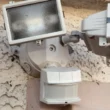He would rather be drunk. He rarely knows the real names of the women with whom he consorts. He frequently complains. He would rather be high. Ask him what he’d be doing if he hadn’t taken his current job and he’ll say, time and again, “I’d be in trouble like my friends back home — dead or in jail.” He is profane, uneducated, impious, lecherous, and unwashed. He doesn’t care much about the war. In most cases, he misses his mother badly.
But the American combat infantryman in Iraq is doing just fine. His emotions tamped into a predatory groove by a long night of remotely observing the Milan runways, his reflexes tuned to Pentium speed by his Xbox, he pulses with caffeine, androstene, maltodextrin, sodium citrate, high-fructose corn syrup, nicotine, and a psychedelium of food dyes. He scores a 10-1 kill ratio when the enemy fights him head-on.
After hours, surfing the online skinmarts, he logs in as Chinaman, MentallySick, SweetThang, watching college girls in Kansas and fleshy female marines in Kuwait disrobe for him before their webcams. In many cases, maybe most, his life in Iraq is safer, freer, and more comfortable than it would have been at home.
Unlike the GI Joes who stormed Normandy, he lacks that lantern-jawed certainty that his enemy seeks global domination. But he’s no Hey Joe, either. He left his bong back in the ranch house and his crack pipe in the trailer. He believes he’s doing more good than harm. He’s not shamming his way home or greasing civilians or fragging his officers. Supply clerks and mechanics around Baghdad might be bugging out on steroids and ecstasy, buggering Iraqis behind the portapotties and begging for Prozac, but the grunts who do the fighting — a mere 10 percent of America’s troops in Iraq — make do with wholesome home cooking: stacks of Barely Legal magazines and tubes of Pringles.
This is the 506th Infantry — the same regiment that immortalized itself as the Band of Brothers in Normandy and Bastogne during World War II. Today’s Joe in the 506th works in the bloodiest sector in Iraq: the heart of Sunni Triangle bandit country, between Fallujah and Ramadi. The regiment’s battle space sees 10 times the national average of attacks on Americans, and some of the units here have taken casualties that rival the ones they suffered in Normandy.
On a cold Thursday night the 3rd Platoon of Charlie Company of the 1st Battalion of the 506th is running a mission called Mad Max: patrolling part of the Baghdad-Jordan highway from an overpass that the Americans have turned into a small fortification. The platoon’s 12-hour shift begins at midnight: six hours on the bridge and another six on the road beneath.
Sergeant Hector Rodriguez, a thick-armed squad leader from the Bronx, has stuck on the windshield of his Humvee black letters that read MICHELLE. But this Michelle is no belle. The vehicle, says its gunner, Gordon Wade, “has been hit three times by roadside bombs and once by a suicide car bomb.” It looks very at home on a mission named after a film set in a postapocalyptic desert.
From the highway overpass, looking out between little sandbag huts too stinking to enter, Wade views a landscape that is almost totally dark. The 8 p.m. curfew in the Sunni Triangle has dried up the traffic on the road below. On one side of the highway there is a village of 50 sleeping houses. On the other side is the still Euphrates. In the dark it is just a flat black mass.
Anthony Cruz is a 29-year-old Texan with a Filipino mother. Half of the platoon’s 37 members are Texans or Southerners. Cruz has been posted abroad for four years. He lights a Marlboro. “I don’t know if it’s because we fucked them up,” he says, “or maybe they’re taking a break. But the insurgents have been quiet.” The night around us is also quiet, except for an occasional cock crowing at this strange hour and sometimes an answering squawk from a radio in one of the vehicles.
Geostrategy and regional politics are other people’s business. At the tactical level, on the ground in their sector in the most violent battle space in Iraq, this Band of Brothers is winning. The 500-man 506th takes mortar fire, sniper fire, rocket-propelled grenades, and bursts of small-arms fire every day, but, as Cruz says, things have quieted considerably since last year. Last year the soldiers of the 506th got shot at or blown up every time they ventured out. Now they freely patrol on foot. Their local polling station had a turnout of 55 percent in Iraq’s January election — three times Iraq’s Sunni average. The 506th’s officers attribute the 75 percent decline in violence on their turf to the retaking of Fallujah, the insurgent stronghold 15 miles away. But after more than a month with them I get the feeling that the fighting has also diminished because of the unit itself: its aggressive tempo, its cultivation of local intelligence. Now the 506th mostly contends with roadside and suicide bombs. Suicide bombers have become the main enemy now that the local insurgency, sapped by severe losses, has stopped fighting head-on.
“It’s hard for us to get through to Iraqis,” says Rodriguez. At 41, he is the oldest soldier in a platoon in which the average age of a private is between 20 and 21. “We’re occupiers and liberators at the same time. But what really fuckin’ gets me is people who criticize us when they haven’t bled for our country. I want to shove them in the faces of the dead kids the Muj have killed.”
Phillip “Doc” Krebbs, the platoon medic, another Texan, is already a leader at 20, although his rank is only specialist — two rungs from the bottom. Krebbs is tall, with a fair Irish complexion. He tried college for a few months but smoked too much pot and dropped out. He has just reenlisted in the army for a further six years. “Saddam’s time is gone, man,” says Krebbs. “I’m more interested in studying up on these insurgents. We got to learn more about Syria.” He takes a pinch of Skoal from a small hockey puck of dip. Almost half the platoon dips.
Rodriguez is doing his own research. “I’m reading the Koran,” he says. “It doesn’t say none of that shit about killing infidels and foreigners and all that. It’s just like back home: You get these ultra-fuckin’ religious fanatics. When we get posted to Colorado later this year there’s going to be guys coming through the barracks on Sunday morning saying, ‘You got to get up and go to church: It’s Sunday.’”
In a platoon full of slackers, David Nash is the biggest slacker of them all. At 19 he’s the youngest, fattest, and laziest, with messy hair, pimples, and a wrinkled T-shirt. When I first met him he was rereading Einstein’s theory of rela- tivity; his colleagues were ribbing him about his weight, about missing time at the front line due to illness, about his snide attitude, about the unsoldierly way the laces flopped around his boots.
“I was smoking a fatty-ass joint one time when the Church of Jesus Christ of Latter-Day Saints came to my house,” says Nash, who is not one of the three soldiers in the platoon who consider themselves religious. “They said, ‘Imagine there is a bridge between heaven and hell, and hell is down here…’ I said, ‘Dude, I am smoking that bridge.’”
On the Mad Max bridge, smoking is allowed only inside cupped palms; smoking in the open might attract snipers. Between silences and the sound of tobacco juice being spat, the huge black sky over the date palms and the minaret of the village mosque pushes the conversation far out beyond the gun trucks and the sand-filled barriers. On a long night watch, the darkness seems to level everything; it feels as if a soldier could be anyone, anywhere, in any time.
Rodriguez: The Iraqi newspapers are saying there’s a giant spider in Fallujah that’s eating American marines. That and a pair of winged horses taking our guys away.
Krebbs: We need to decipher that shit if we want to understand these people and win this war. You have to understand that it’s all meta-phor. Nobody’s that fuckin’ stupid.
Mad Max’s midnight-to-noon stretch feels like a day in the 3rd Platoon’s life: the snatched sleep, the caffeinated alertness, the enemy you never see, the fear buried beneath a tarmac of tedium and talk. As the night gets colder and colder, the nine soldiers on the bridge sit down inside their vehicles, one by one. Soon only the turret gunners are awake, keeping watch via the green glow of night-vision devices. Through the pixelated optics they see a world that looks like a primitive videogame, dichromatic and on pause, without bad guys.
Sitting on top of Rodriguez’s vehicle, Wade chews a mouthful of sunflower seeds and loudly spits out their husks. By his side a radio pops and whines. Back at base I saw Rodriguez taking Wade to see the chaplain. Wade had been mute then, staring at the ground as we passed each other. He’d just learned that his best friend was dying of cancer back home in Boston. Now Wade quietly watches the stars wheeling overhead. In the village, a few hundred yards away, fluorescent lights flicker. But except for the green glow of Wade’s night-vision device and the occasional faint orange cherry of somebody’s cigarette, the night is still and dark.
By the time the darkness lifts from the bridge it’s almost 6 a.m. The Euphrates is a pearly opalescence of yellow and blue. Lines of cloud mimic the sand bar running down the middle of the river. The sky between the streaks of cloud is blue and yellow, like the water. From the bridge the road is also like the river, with muddy strips like the dark undersides of the clouds. Soon there are tiny flashes of pink on the fish-scale palette: in the vapor trail of a jet, and where the clouds meet the horizon.



